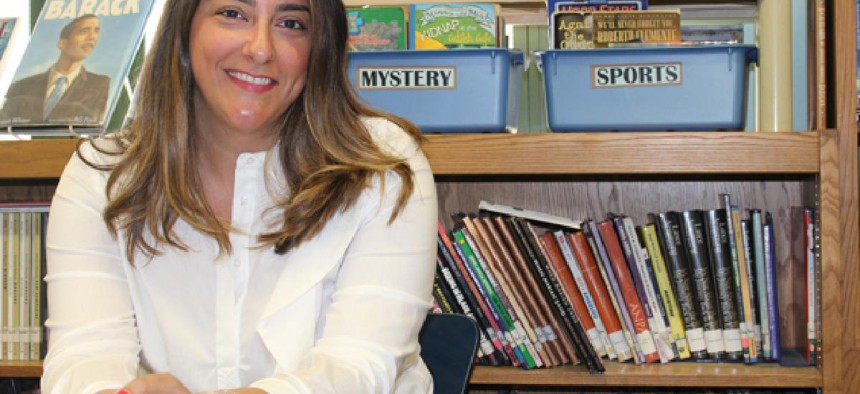Front-line Hero: Jessica Gulmi, Clinics in Schools Coordinator

Ever since her playground days in New York City, Jessica Gulmi has acted as a mediator. Now a licensed clinical social worker with a master’s degree in forensic psychology, Gulmi’s capacity to listen and her courage in the face of adversity serves her well as coordinator of Clinics in Schools, a program started in 2010 by Northside Center for Child Development.
“Injustice never did sit well with me,” she said, reflecting on a career path that started with an assignment working on childhood trauma cases for then-Manhattan District Attorney Robert Morgenthau and eventually led to social work.
For 70 years, this nonprofit, founded by civil rights leaders Kenneth and Mamie Clark, has served the children of Harlem and the Bronx.
Seven years ago, when Centers for Disease Control and Prevention studies showed that mental health issues strike 1 in 5 U.S. school children, Northside developed the Clinics in Schools program to help students ages 4-18 who are facing emotional, behavioral or learning challenges.
“Addressing mental health issues early results in improved academics and better life outcomes,” said Dr. Thelma Dye, Northside’s executive director and CEO since 1994.
Northside Clinic Director Jean Holland recruited Gulmi as an intern to help implement the program. From 9 a.m. to 6 p.m., Clinics in Schools offers on-site services to students and their families, meaning parents are less likely to miss an appointment and ensuring a teacher is available to participate. In addition, the program provides teacher training, medication management and general referrals.
“Jessica’s sensitivity and capacity to deeply embrace families, balanced by a strength that keeps her going when families face difficulties, make her invaluable to the program,” Dye said.
The program started with a treatment center in one local public school and now operates clinics in 10 public and charter schools in its jurisdiction, serving 300 students and their families annually. Gulmi became clinic coordinator in 2015 and she now supervises all 10 locations, working directly with clinicians. Funding from the Robin Hood Foundation, a new partnership with the CVS Health Corp. and other support has meant increased services for current programs and new plans for expansion.
Space is often the biggest hurdle to expanding because schools don’t often have extra classrooms, and privacy is an issue. Northside is experimenting with using telepsychiatry to accommodate a greater number of students.
African-American children ages 13-18 are 20 percent more likely to experience mental health disorders than the general population, Dye said. Often, students labeled with behavioral problems get trapped in a cycle of school suspensions that leads to dropping out or going into the criminal justice system. “As with any health issue, early intervention is the most effective treatment,” she added.
And thanks in part to New York City first lady Chirlane McCray’s Thrive New York City initiative, seeking mental health treatment for youngsters doesn’t carry the same stigma as it did in the past.
“Not only has Thrive NYC instituted safety nets in order to avoid hospitalization, the barrier that prevented people from seeking treatment in the past has declined,” Gulmi said.
Gulmi recalled one student, who just a few years ago found it difficult to attend school because of anxiety, bullying and financial concerns. Together, they made a plan that included a period of medication, cognitive therapy and physical activities. The student has since been accepted to a prestigious college.
“She worked hard to acquire new skills that allowed her to stabilize and grow,” said Gulmi, adding that the student will continue in the program through the summer.
Gulmi joins family sessions when invited and meets weekly with school administrators to develop procedural plans to coach teachers so that they can perform triage as situations arise.
Perhaps one of the most important lessons she’s learned through her experience at Clinics in Schools is that resilience can be learned.
“Children don’t move away from their struggles, which is an important lesson,” she said. “I tell kids that feelings are like the weather that keeps changing, and so will you. You won’t always feel bad.”
Eds. Note: This text has been updated to clarify Jessica Gulmi's title.